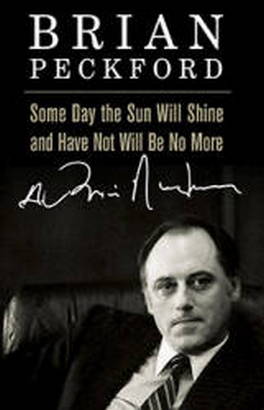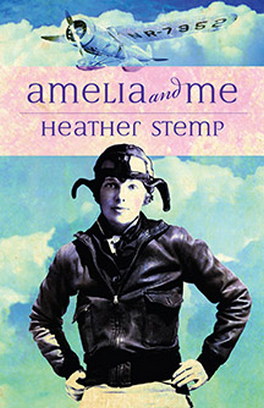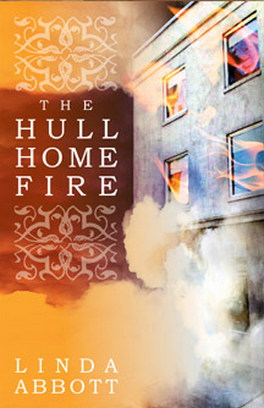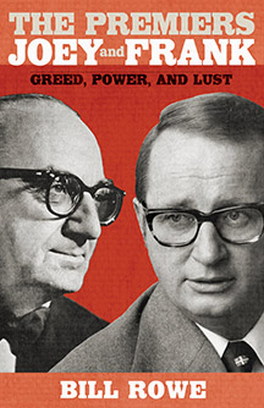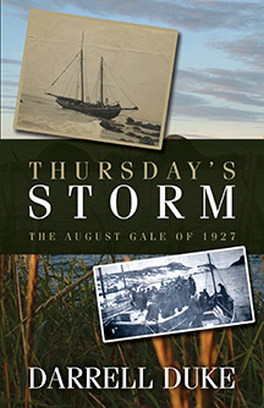Stoker's Shadow tells the story of the late Bram Stoker's surviving family members in 1922 as they struggle to come to grips with the dark undercurrents in the novel Dracula. Florence, Bram's widow, is shocked when a German company, Prana Films, pirates her late husband's story for a film, Nosferatu. William, the son of Bram and Florence, is at first baffled by his mother's discomfort, but he soon finds himself struggling with his own memories. Mary, Florence's free-spirited young Irish companion, is captivated by 1920s London and all its mysteries. She finds escape in her copy of Dracula and forms an unlikely, and to Florence's mind a dangerous, bond of friendship with William. Short listed for the 2004 Newfoundland and Labrador Book Awards - Bennington Gate Fiction Award
The maid turns. She sees him staring at her. But he doesn’t feel caught. Her look is open and curious, not afraid. This is part of her charm. She doesn’t understand the rules, of course, she isn’t English; so how could she know they were both breaking them?
“Is she in the morning room, Mary?” William asks.
He does not take his eyes from her.
“Yes, Mr. Stoker. Waiting for you,” she answers. To William, her west Irish accent bends syllables almost beyond recognition while at the same time remaining as light as a stream. She seems to blush slightly; this pleases him too because he loves the way her skin reflects her golden hair.
William shuffles through the little vestibule to meet his mother. The boulder returns and the dust resettles. He opens the door into the verdant jungle morning room. The paradox strikes him immediately. This place ought to be cheerful with its fantastic greenery and its constant pulse of life. But it isn’t. There is a funerary air in the thwarted daylight, in the few rays that struggle past the palms and yuccas pressing against the windows. These narrow shafts catch the hanging dust, making William think of the slit windows of a medieval castle.
As usual, his mother is pretending she hasn’t noticed him enter. William feels his pulse quickening.
His mother’s intelligent pale blue eyes are steady; her gaze rests on a pamphlet in front of her. Her neat, classical features are, as always, a picture of composure – a Greek goddess grown into a wise old woman.
William clears his throat, trying to gain her attention without speaking and legitimizing her pretense. The only acknowledgement, however, is from his mother’s parrot which shuffles on the perch and tips its head at William – a faithful centurion guarding its empress. His mother remains quite motionless.
William is unable to take it anymore.
“Well,” he booms suddenly, surprised at himself. “How are you, Mother?”
His mother’s brow furrows. She raises her head and gives him a benign smile.
“William, how nice to see you! How’s Maud?” She turns the pamphlet over.
William clenches his teeth.
“It’s nice to see you too, Mother,” he blusters. “Maud is very well. What can I do for you?”
“My dear, just by coming to see me you are already doing so much for me.”
She smiles sweetly again.
“Well, of course I’m always delighted to come and see you, Mother. But I was wondering particularly why you called me at work this morning, delighted though I always am to drop in on you on the way home.”
“What do you think of my companion?”
She gives him a mischievous smile.
William looks at the parrot.
“No, Mary.”
“Companion? I thought you took her on as a maid.”
“Oh, no, no.” His mother lays the pamphlet aside and raises herself from her seat. “She’s not exactly a maid.”
“If she’s not exactly a maid, why is she dressed like one? And why is she answering your door?”
His mother picks up a dainty porcelain spray can and drifts away towards the plants. “She’s helping Mrs. Davis,” she says. Little clouds of vapour appear between them.
William wonders what traps she is setting for him behind the white puffs and splaying leaves.
He feels his chest tighten. “Helping your housekeeper,” he says. He knows he is raising his voice but can’t seem to help it.
“My dear William, please sit down,” his mother says, reappearing from the greenery with her spray can. “Don’t be angry with me. I take whatever companionship and help that is offered me.” She gives him a sweet, helpless smile as she returns to her chair. “And in return I can help her take a step up in society.”
“She won’t take a step up in society by cleaning your floors and answering your door.”
But William obeys. He circles the room to the oriental chair near the window. The parrot croaks a territorial warning as he sits.
“We will just have to see how the arrangement turns out, William. She is from Ireland. I may be of help to her.”
“Of course,” he agrees in order to shut the conversation off. “I’m sure you’re right, Mother.”
William puts his hands on his knees and gives her a tight smile. “In any case, Mother, what is this emergency you told me about on the telephone? What can I do for you?”
His mother’s gaze slips onto the pamphlet now face down on the lacquered side table. “Oh William, I’m almost afraid to show you.” But she reaches out and draws it towards her lap.
There is a tense silence. From where William sits, he can see the illustration on the pamphlet, a grotesque, crooked shadow, like the cover of a lurid novel, except in the stylized, distorted manner of a latter-day Van Gogh. William wonders what such a thing could possibly have to do with his mother or himself.
After what seems like an age, she lifts the pamphlet up and passes it to him. The parrot scrapes on its perch over William’s head.
Face to face with the bizarre illustration, he remains none the wiser. The illustration seems to have spilled over from somebody’s nightmare. The central figure is neither substance nor shadow, more a mixture of both. Its headlamp eyes and pointed teeth convey a truly remarkable malignity.
And then, in the bottom right-hand corner of the picture, something catches his eye – some German words and then his late father’s name: “Bram Stoker.” William feels his mother’s expectations; he can hear her soft breathing as he gazes. The parrot squawks. William notices the banner of flying rats spell the word, Nosferatu. He remembers the word from reading his father’s novel when he was a young man.
“Nosferatu,” William says bewildered. “Eine Symphonie des Grauens.” William lets the meaning fall, remembering a few terms of German from his distant school days. “‘A symphony of horrors,’ of course. A motion picture of father’s novel!”
The writing is so persuasive that it makes the supernatural seem natural...A fresh and accomplished blend of myth and fact, Stoker\\\\\\\'s Shadow is the real thing.-- Newfoundland and Labrador 2004 Book Awards jury --
Butler's prose style is often lush; he describes post-Victorian London quite eloquently...-- Lynn Crosbie, The Globe and Mail, December 13, 2003 --
Stoker's Shadow is a stunning achievement that will doubtless gather to itself all praise.
-- JoAnne Soper-Cooke, author of A Cold-Blooded Scoundrel --
Though the vampires in Bram Stoker\\\\\\\'s novel Dracula cast no shadows, the author and the book certainly do. In Stoker\\\\\\\'s Shadow, Paul Butler explores this phenomenon in a unique blending of biography and dreamscape.-- Dr. Elizabeth Miller, author of Dracula: Sense and Nonsense and A Dracula Handbook --
Stoker\\\\\\\'s Shadow is an interesting read because of its unique approach and its historical insights.-- The Newfoundland Herald --















